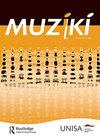Contesting Cultural Imperialism: Hybridisation and Re-enactment of Indigenous Cultural Values in Nigerian Hip-Hop Music
IF 0.8
0 MUSIC
引用次数: 0
Abstract
Abstract Hybridisation, that is, the blending of different cultural elements to create a new cultural form and identity, has become a significant linguistic feature of hip-hop music in Nigeria. Existing studies have focused largely on the negative roles of hip-hop music describing it as a tool for cultural imperialism and fostering deviant behaviour among youths. However, sparse scholarly attention has been paid to the cultural significance of hybridisation in Nigerian hip-hop music for promoting indigenous cultural values, especially among the youths in such a culturally complex country. This article reports on a study that was designed to examine hybridisation in Nigerian hip-hop music with a specific focus on the Yoruba language which is prominently used in the genre. This was done to establish how the linguistic process has challenged the notion of cultural hegemony in a way capable of changing youths’ perception of their indigenous cultural values. Using a mixed-methods approach, the researchers administered 255 copies of a 17-item questionnaire to students at the University of Ibadan, Nigeria. They also conducted five in-depth interviews with purposively selected hip-hop artistes and music producers in Ibadan, while they analysed the contents of 40 randomly selected Nigerian hip-hop music videos produced between 2010 and 2015. The findings of the study revealed a high level of hybridisation manifested as the blending of Yoruba cultural content into Nigerian hip-hop music. The study also established that hybridised hip-hop music, as a form of communication, exerts a positive influence on youths’ perception of indigenous culture and values.对抗文化帝国主义:尼日利亚嘻哈音乐中本土文化价值观的融合与再现
抽象混合,即不同文化元素的融合,创造一种新的文化形式和身份,已成为尼日利亚嘻哈音乐的一个重要语言特征。现有的研究主要集中在嘻哈音乐的负面作用上,将其描述为文化帝国主义的工具,并在年轻人中助长越轨行为。然而,学术界很少关注尼日利亚嘻哈音乐混合对促进土著文化价值观的文化意义,尤其是在这样一个文化复杂国家的年轻人中。这篇文章报道了一项研究,该研究旨在研究尼日利亚嘻哈音乐的混合,特别关注该流派中显著使用的约鲁巴语。这样做是为了确定语言过程如何挑战文化霸权的概念,从而能够改变年轻人对其本土文化价值观的看法。研究人员采用混合方法,向尼日利亚伊巴丹大学的学生发放了255份17项问卷。他们还对伊巴丹有意挑选的嘻哈艺人和音乐制作人进行了五次深入采访,同时分析了2010年至2015年间随机挑选的40个尼日利亚嘻哈音乐视频的内容。这项研究的发现揭示了一种高度的混合,表现为约鲁巴文化内容与尼日利亚嘻哈音乐的融合。该研究还证实,混合嘻哈音乐作为一种交流形式,对年轻人对土著文化和价值观的感知产生了积极影响。
本文章由计算机程序翻译,如有差异,请以英文原文为准。
求助全文
约1分钟内获得全文
求助全文

 求助内容:
求助内容: 应助结果提醒方式:
应助结果提醒方式:


